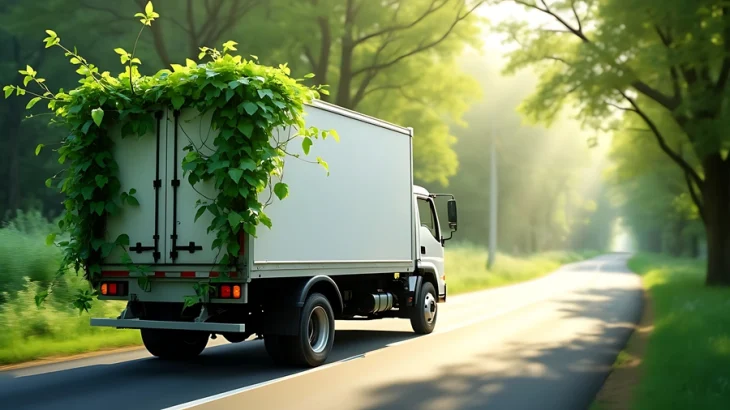
In an era where environmental consciousness and sustainability is a global priority, the courier industry is stepping up to the challenge.
With the rapid growth of e-commerce and on-demand delivery, couriers are increasingly adopting eco-friendly practices to reduce their carbon footprint – and Abetta Couriers is ahead of the game. Here’s a closer look at the innovative strategies helping to reshape courier services into greener common practice.
The meteoric growth in online shopping has transformed consumer behaviour over recent years, but, as with any major industry changes, this comes with a major cost. A massive increase in package deliveries has resulted in more vehicles on the road, higher fuel consumption and thus, a surge in greenhouse gas emissions – from air pollution in urban areas to excess packaging waste, the courier industry faces significant and evolving environmental challenges.
A study by the World Economic Forum estimates that the number of delivery vehicles in urban areas will increase by 36% by 2030, potentially leading to a 30% rise in emissions if no action is taken. To mitigate this impact, sustainability must become a cornerstone of courier operations.
Larger couriers, such as UPS, FedEx, and DHL are investing in electric and hybrid fleets to cut emissions, as electric vehicles (EVs) not only reduce air pollution, but also lower operational costs in the long run. Local couriers in urban areas are also fast adopting electric scooters and bikes for last-mile delivery.
In cities around the world, bicycle couriers are making a comeback, with pedal-powered deliveries offering a zero-emission solution which is ideal for more congested, built-up urban areas – companies such as Deliveroo and Postmates actively encourage bike delivery options at the customer facing end of operations.
Advanced route optimisation software is helping couriers reduce fuel consumption by calculating the most efficient delivery routes and minimising unnecessary mileage – these tools not only save time and money, but also contribute to lower emissions.
To reduce the frequency of trips, couriers are consolidating deliveries whenever possible. This involves bundling multiple packages destined for the same area or offering consumers incentives to select consolidated delivery days.
Beyond transportation, packaging is another crucial consideration when looking to move to more sustainable practices overall. Biodegradable, recyclable and reusable materials are fast becoming standard industry-wide, replacing single-use plastics. Some companies are even exploring innovative solutions such as edible packaging for certain goods.
Many courier businesses are now offering carbon offset options for deliveries, where customers can pay a small fee to offset the emissions generated by their package delivery, funding projects such as reforestation and renewable energy.
Establishing micro-distribution hubs within cities is another way of reducing the distance delivery vehicles are required to travel, with this approach enabling more efficient last-mile deliveries and in turn, promoting the use of smaller, more eco-friendly vehicles.
Several courier companies are leading the charge in sustainability. Examples include DHL, who have pledged to achieve net-zero emissions by 2050, investing heavily in green technology and carbon-neutral initiatives. Amazon recently launched “Shipment Zero,” a scheme aiming to make 50% of its shipments net-zero carbon by 2030 and FedEx is integrating electric vehicles and renewable energy at its facilities, with a goal of carbon-neutral operations by 2040.
These commitments by the big players demonstrate that even large-scale courier services can effectively balance environmental responsibility with operational efficiency. While progress is promising, sustainable courier practices face several hurdles. Electric vehicles and renewable energy systems require significant upfront investment, heavily impacting and ultimately, driving costs higher.
EV charging stations and urban micro-hubs require large scale expansion to support a widespread green transition and meeting consumer demand for faster, same-day delivery often conflicts with environmentally sustainable practices. Addressing these obvious challenges will require collaboration between courier companies, governments and consumers alike.
Consumers play a pivotal role in driving sustainability by choosing eco-friendly delivery options, supporting companies with green initiatives and being more flexible with delivery times, they can help contribute to a more sustainable courier ecosystem.
The path to sustainability in courier services is clear – innovate, invest, and collaborate. As technology continues to advance, the potential for greener operations will only grow and by embracing these practices, the courier industry can play a crucial role in reducing global emissions and creating a more sustainable future for all of us and ensure that daily convenience does not come at the expense of the planet.